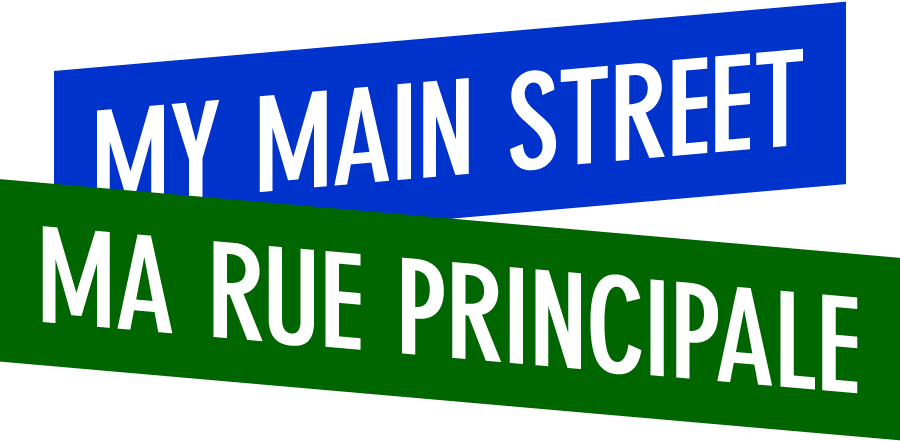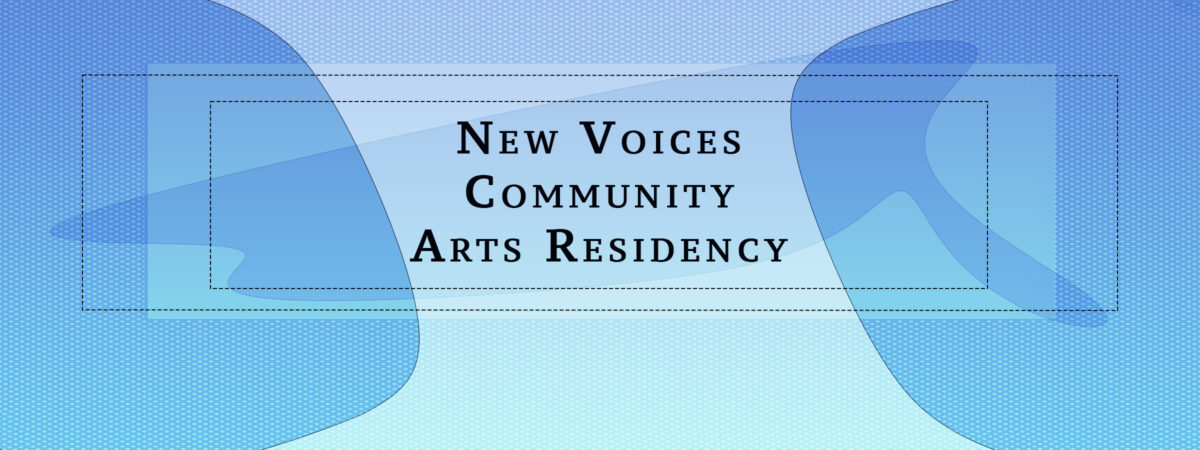
New Voices Community Arts Residency: Alejandro Franco
NOVEMBER 16: ALGORITHMIC ACID MUSIC!
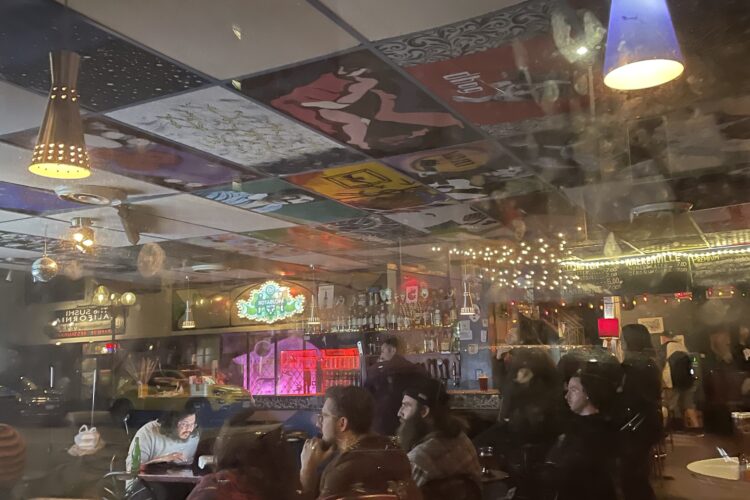
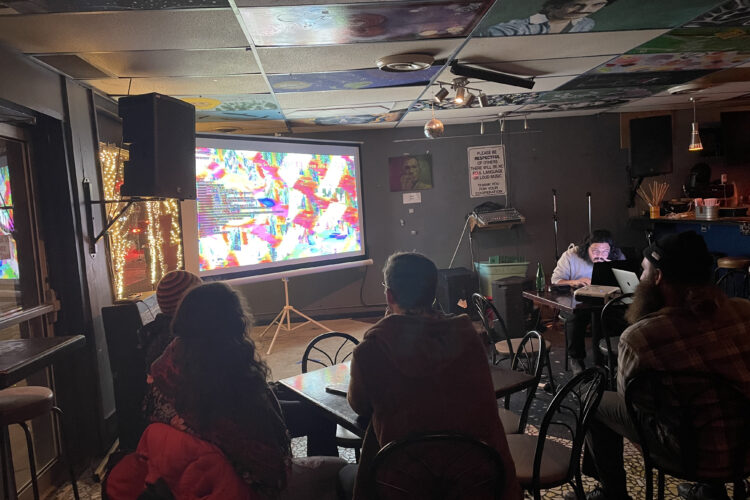
Alejandro Franco Briones performed with his live coding ensemble, Pirarán at @phoglounge (157 University Ave. W.)
This free performance was followed with a DJ set by Odessa!
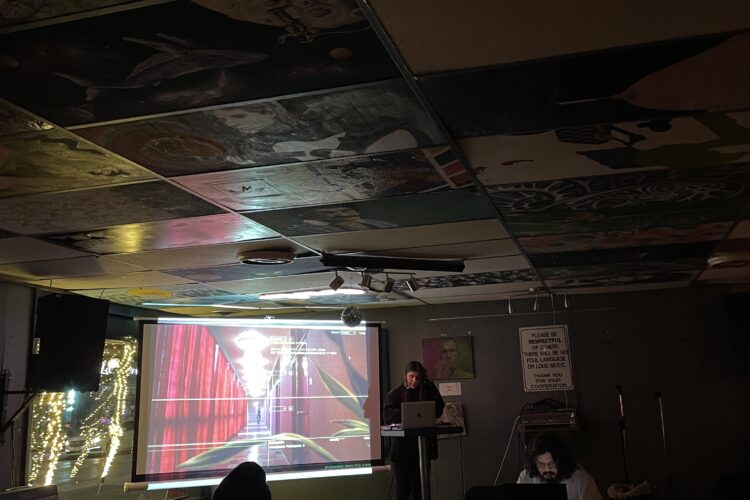
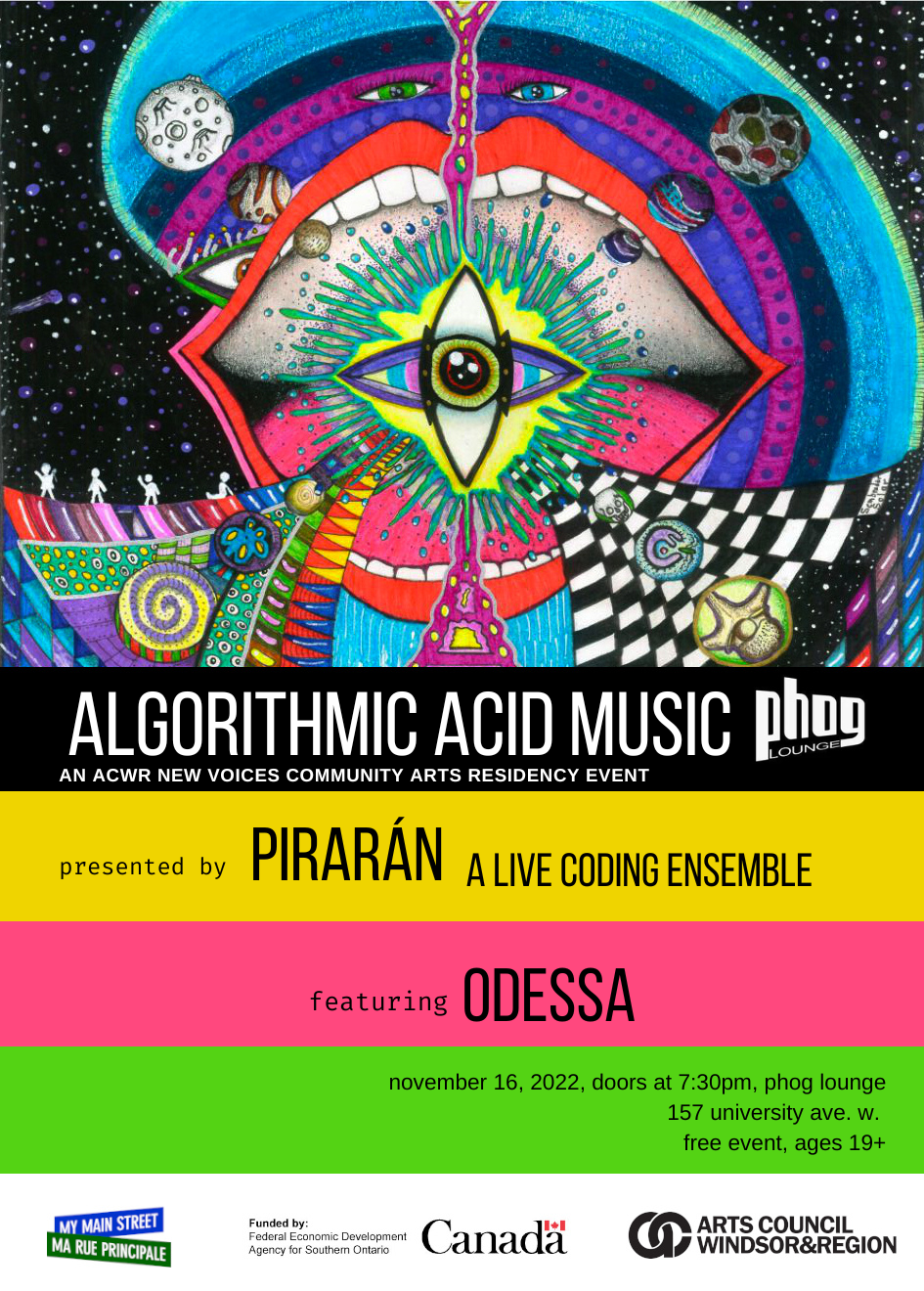
NOVEMBER 12th: UTC (-) exhibition closing event at ArtSpeak Gallery!
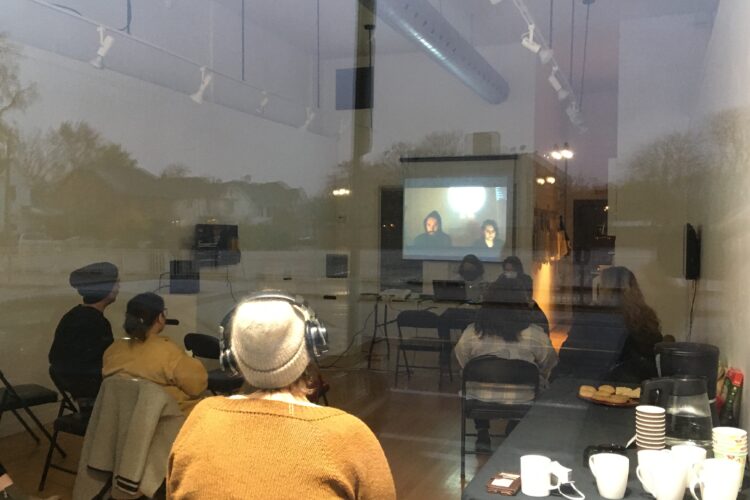
Thank you so much to everyone who came to ArtSpeak gallery this past Saturday, Nov. 12th to attend the live coding concert!
If you missed the event, you can still see and hear it here.
-
UTC (-) Exhibition
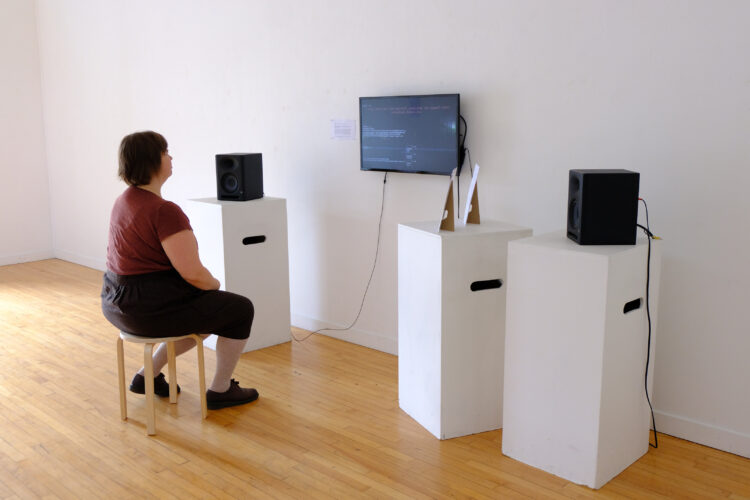
UTC (-) exhibition 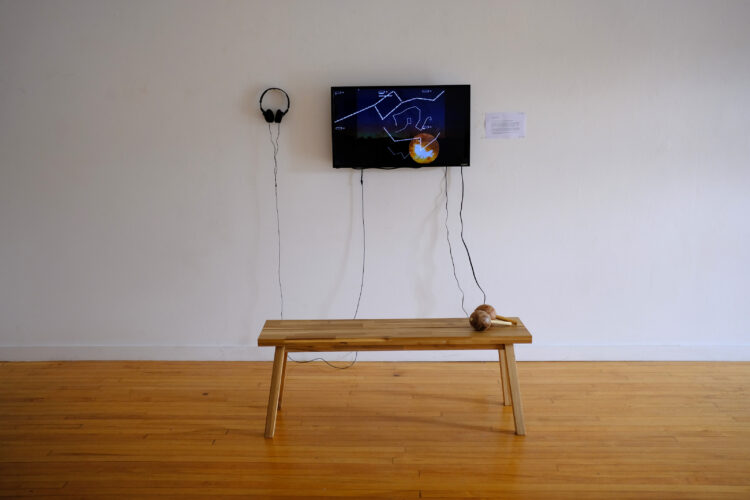
UTC (-) exhibition UTC (-) is an exhibition of live coded documentary works by the New Voices artist in residence, Alejandro Franco Briones.
UHM (Unidad de Hinvestigación de Morbosidades Temporales) is a transamerican group interested in computer languages, composition and art. Most of its conceptual interests reside in ongoing investigations about time and Mesoamerican philosophies and culture.
UHM is an on-going process of coding, reflection and live collaborative work whose purpose is to affect bodies. UHM members and research centres are not fixed and their work takes place in different parts of the American continent since 2017.
The closing event will take place on Saturday Nov. 12th from 4:00 – 7:00 with a networked gathering of live coding performers.
This event will be a gathering of live coders that celebrate the fragility of the algorithm: to reveal living words beyond the dead number; to illuminate the poem underneath the command, the moving souths over the constant norths.
Here live coding is imagined as a form of communal agency: an opportunity to exchange without capital, to relate without alienation, to give and to take without exploitation. Live coding becomes an imagined community that creates and erases boundaries, distorts and reconfigures time and space, and produces new ways of seeing and hearing.
This is a hybrid event, if you are not able to come to ArtSpeak gallery you can see and hear the concert online here.
Please register here for this event
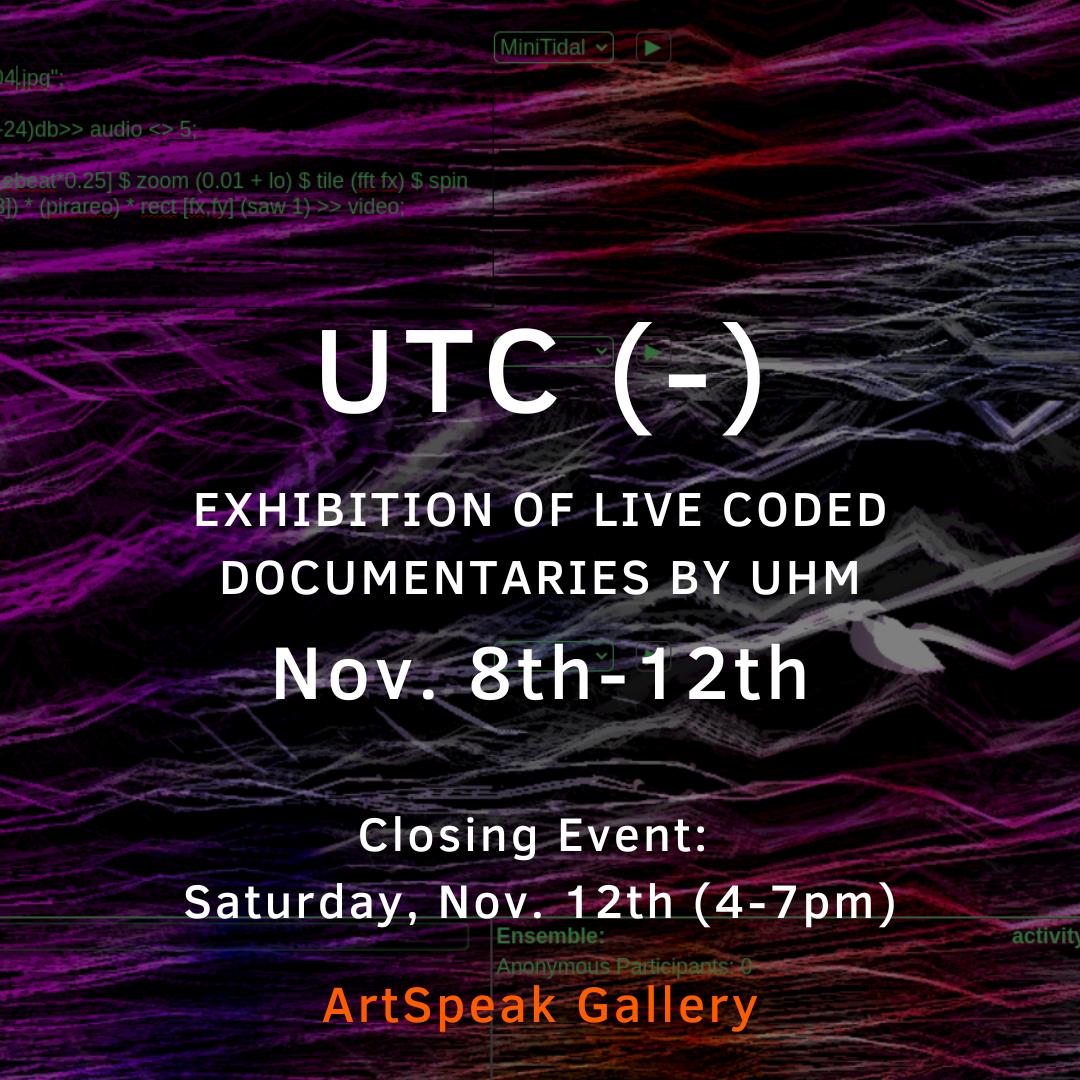
-
October Workshops
Virtual Workshop (Over Zoom): Context, theory and syntax of live coding
Wed. Oct. 12th, 5:00 – 7:00 PMParticipants enrolled in this virtual workshop will learn about:
– The history of live coding
– The nature of live coding networked communities
– TidalCycles syntax
Participation requirements: Access to laptop or computer with Chrome browser installed & headphonesIn-person Workshop at ArtSpeak Gallery: In-depth explorations
Fri. October 14th, 4:30 – 7:30 PMParticipants enrolled in this workshop will be offered an in-depth exploration of the Estuary platform, including the process for creating ensembles to collaborate with others online. This workshop will also offer:
- Further explanations on control patterns and time functions as well as sound effects and pitch structures .
- Reactive visuals in Punctual. The participant will learn how to code basic visuals that react to sound for their performances.
- Live Coding strategies. Participants will learn basic aspects of intra-ensemble communication and basic strategies to start, finish and develop a performance.
-
An Introduction to Live Coding as Artistic Practice: Sep 14
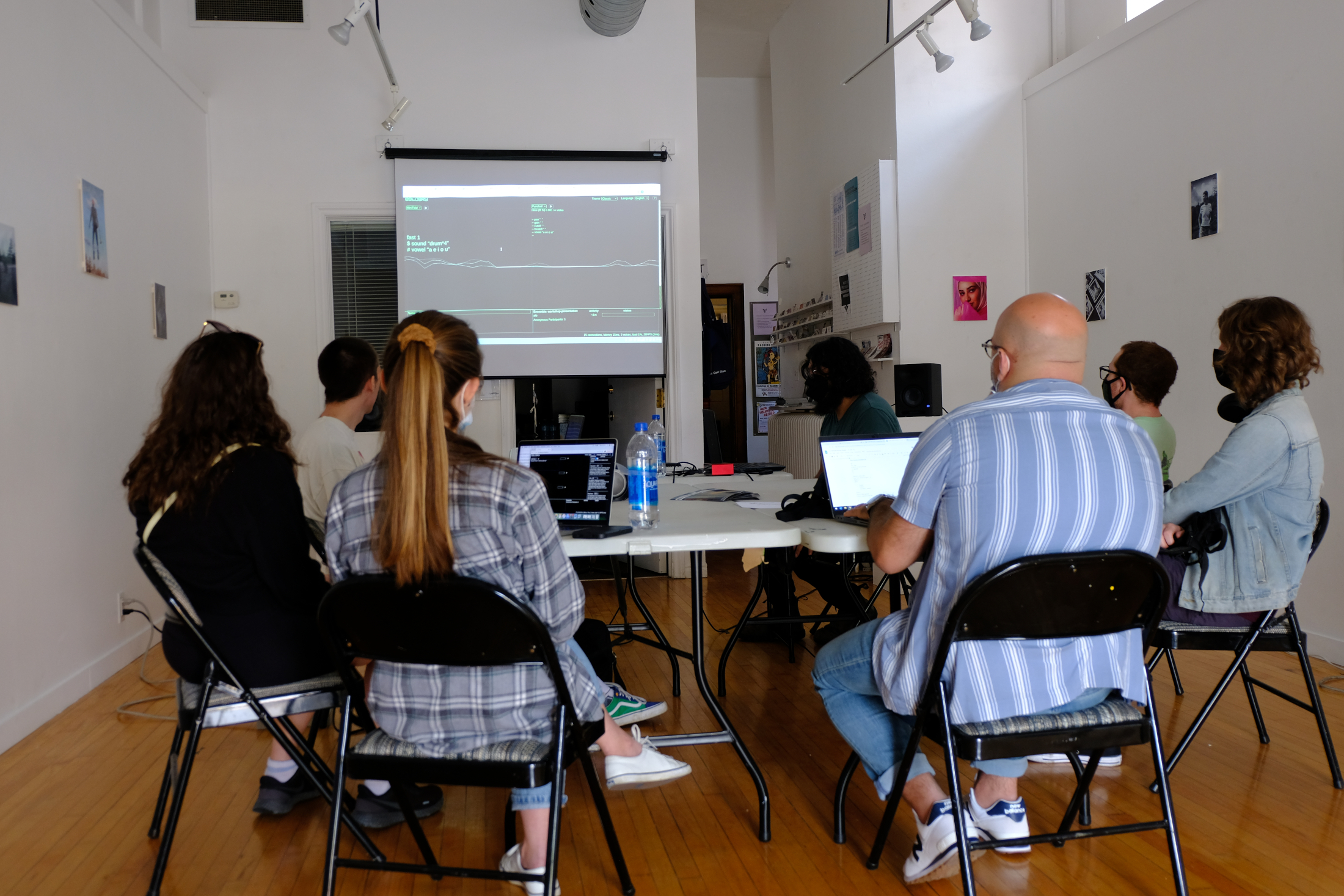
Live coding workshop held on Sep. 14th Thank you so much to everyone who came to ArtSpeak gallery for the first live coding workshop.
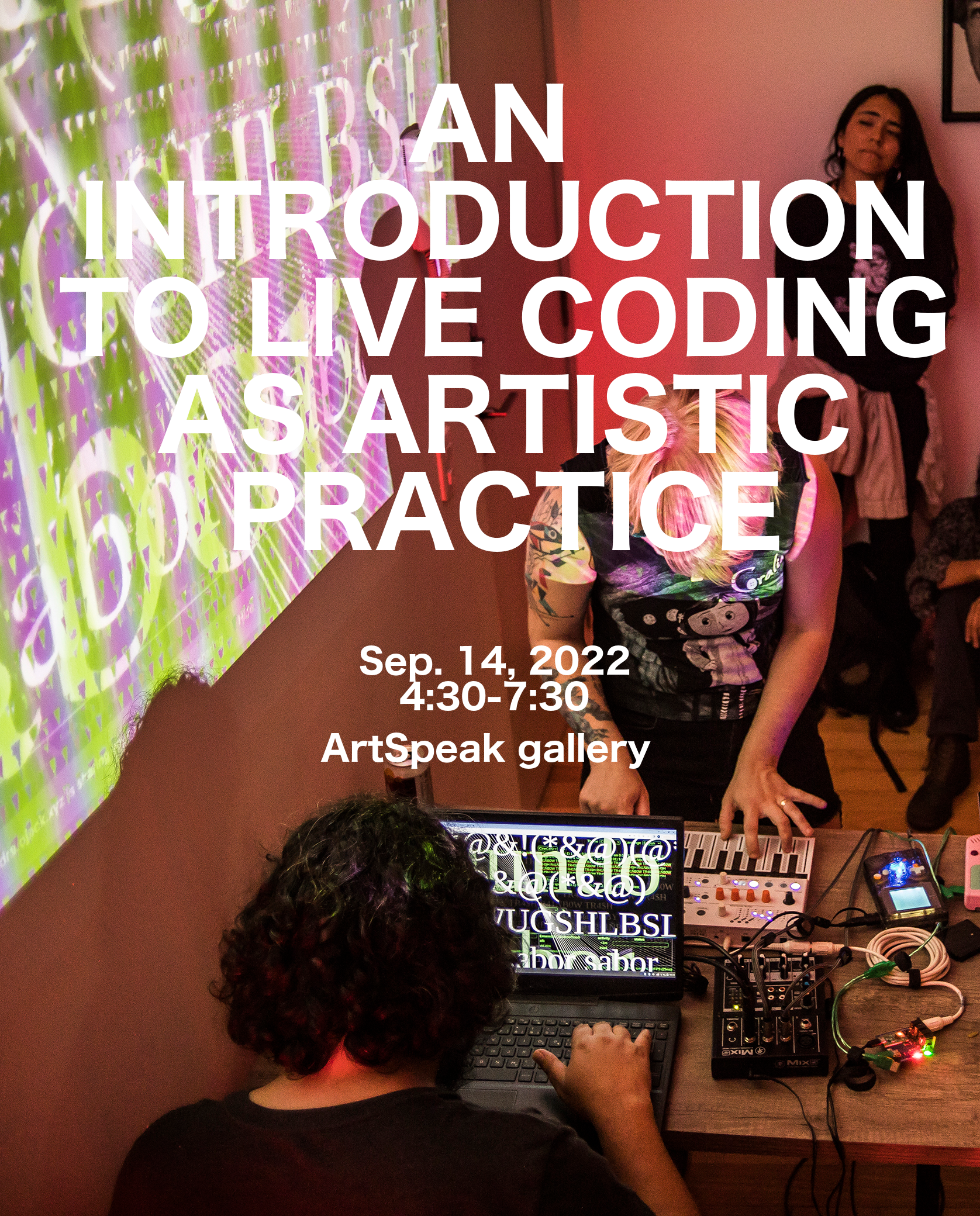
Live coding workshop. Sep. 14th, 4:30-7:30, ArtSpeak gallery
In this free, introductory workshop, participants will have the opportunity to learn basic live coding skills, including:
– A brief overview of live coding environments and programs.
– Examples of live coding performances and art works.
– Basic principles of programming.
– Networked ensembles and collaborative live coding
– Algorithmic production and processing of videos, images, text, audio samples, audio synthesis.No previous experience necessary.
In-person capacity: 20
Please register to secure your place!Requisites:
You are required to bring a laptop, preferably with the Chrome browser installed, and headphones!!!Light refreshment will be provided!
Photo by Jay Watts.
-
Introducing Alejandro Franco

ACWR is pleased to announce Alejandro Franco as our second artist in residence for the NEW VOICES Community Arts Residency. We look forward to introducing Briones to the Walkerville and Windsor communities and are excited about the possibilities forthcoming from his presence and work.
Alejandro is a composer, live coder and sound artist from Mexico City. Some of his major interests are: time-oriented music, network art ecologies and musical/technological notational systems. Alejandro is also a PhD student at McMaster University in the department of Communications, New Media and Cultural Studies. He is interested in struggles for resistance and autonomy and artistic forms of community organisation that are emancipatory. Alejandro has been awarded with Prince Claus Mobility Fund, Sony Forward Creativity Award and the CONACYT-FONCA scholarship for post-graduate studies abroad. He has presented papers and performances in the International Conference on Live Coding in its third, fourth and fifth iteration, the Electroacoustic Music Seminar in Mexico City, participated in independent experimental music festivals and concerts like the Network Music Festival (2020), Umbral Concert Series among many others. Alejandro is currently a teacher assistant in McMaster University teaching Digital Audio and New Media Arts, and a Research Assistant in the Network Imagination Laboratory (NIL) developing the online music platform Estuary.
-
Conversation with Alejandro
ACWR:
How would you describe your artistic discipline/practice?Franco:
I am a new media and sound artist specialised in networked environments. I work with software to create artworks that span from on-the-fly documentaries to interactive sound installations with a particular emphasis on performative practices. More precisely, I am a live coder. Live coding is a practice that lies at the intersection of programming and artistic creation, often with an emphasis on music. My live coding practice is heterodox in the sense that it is mostly collaborative and often in networked conditions, which means that I often perform and create with others with a networked mediation. Either the stage is in the network as well as the audience or the network acts as an instrument that is displayed for a specific, localised audience.I am most interested in a hybrid practice where the network is both the stage and part of the instrument. My live coding practice is often informed by two different research interests: cognitive territories instantiated as Domain Specific (Programming) Languages (DSLs) and time studies. Thus, I am interested in creating grammatical and syntactic structures that allow us to think about time in ways beyond the conventional.
My art practice also engages with themes of decoloniality and settler colonialism from a global perspective, interrogating in particular the role of Canada in the world. My background as an artist from the global south (Mexico City) living as a guest in the traditional territories of the Mississauga and Haudenosaunee nations is fundamental for engaging with this aspect of my practice. Thus, the conceptions of time that I am producing through my practice reject Eurocentric time-keeping technoscientific formations and embrace emancipatory and desired cultural forms of temporality. Hopefully, these desired temporal forms can deepen a global sense of solidarity bound to historic movement and change.
ACWR:
What does the word “community” mean to you and what does it look like in practice?Franco:
Community implies proximity with other people. Such proximity might be defined in very different ways: sometimes it is geographical; other times it can be a proximity of values, ideas or desires. In this way, it is worth problematising the idea of community by recognising it as a locus of tensions, hierarchies, and often exclusion. As an immigrant that has to navigate unfamiliar cultural and social situations in Canada, as well as the Canadian state’s many border mechanisms and racisms, I have to experience, in an extensive way, what a community means in this sense – from its outside.An example of a desired community framework for me would be Zapatismo, a philosophical and political position originating in the south of Mexico among indigenous rebel communities and marxist-leninist guerrilla fighters. In Zapatismo community formation does not exclude difference and change. This means that there are no fixed identities that determine belonging and there are spaces of disagreement that can make difference commensurable among people that participate in the formation of the same community. In practice, as a live coder and sound artist, I believe that networked, computarised environments can make possible Zapatismo-informed communities: on the one hand, networks can annihilate spatial distance between people; on the other hand, networks can utilise, design, and distribute open-source and free software, disseminating legal and ethical principles that govern hacking communities.
In the case of Zapatista communities it is the desire of a world in which many worlds can co-exist that keeps people in proximity. In open-source and free software communities it is not only the desire of a world beyond capitalism but also a fundamental redefinition of property (particularly intellectual property) and the commons that puts them in proximity. The ability to articulate Zapatista politics with hacker ethics and legal frameworks can engender a live coding practice capable of articulating desire and resisting commodification and alienation. Concretely speaking, community-building has to be based on the respect of difference, sharing common knowledge and resources, and allowing change and movement.
ACWR:
What is an example of a community-based arts practice to you?
Franco:
Live Coding is a practice that has managed to produce its own political economy by sharing (freely) code, software and tools to create digital sound and visuals without the mediation of institutional legitimacy or market prestige, and without paying rent or intellectual property rights to big corporative interests. Live coding’s dependence on the free circulation of tools, skills and knowledge inherently tends to form communities.
Furthermore, the online spaces that support the circulation of material means has become not only an arena of socialisation and community formation but also a stage to meet and play music (and visuals or any kind of performative practice) with others. In other words, live coders have produced a network of globally organised communities that revolve around the desire to express themselves through music, visuals, poetry, dance, etc.
All around the globe there are nodes that organise events, often called Algoraves, where code is discussed, shared and performed. I have been involved in the organisation of nodes in Newcastle (UK), and Mexico City and currently I am trying to ignite the formation of the Ontario Node. Furthermore, I am involved in an online art-creation platform research project hosted at McMaster University where networked live coding is a fundamental practice to be considered. Networked live coding is a form of community building practice on itself as well as a way to radically transform the locally-oriented live coding nodes mentioned earlier. This means that new communities are being formed not necessarily bound by geography. More interestingly, already locally articulated communities are able to interact with others allowing for different skills, techniques, tools and cultures to be adopted and transformed in productive and meaningful ways.
With this residency, I envision that one of my activities would be to facilitate the creation of a live-coding community in Windsor: in organizing public workshops on programming for artistic creation, I would aim to foster community-building that can bring local artists and youth from Windsor into the live-coding nodes and networked music communities around the world.
Support for the creation of the New Voices Community Arts Residency is provided by a grant received from the My Main Street Community Activator program offered by the Government of Canada through the Federal Economic Development Agency for Southern Ontario (FedDev Ontario) and delivered by the Canadian Urban Institute.

